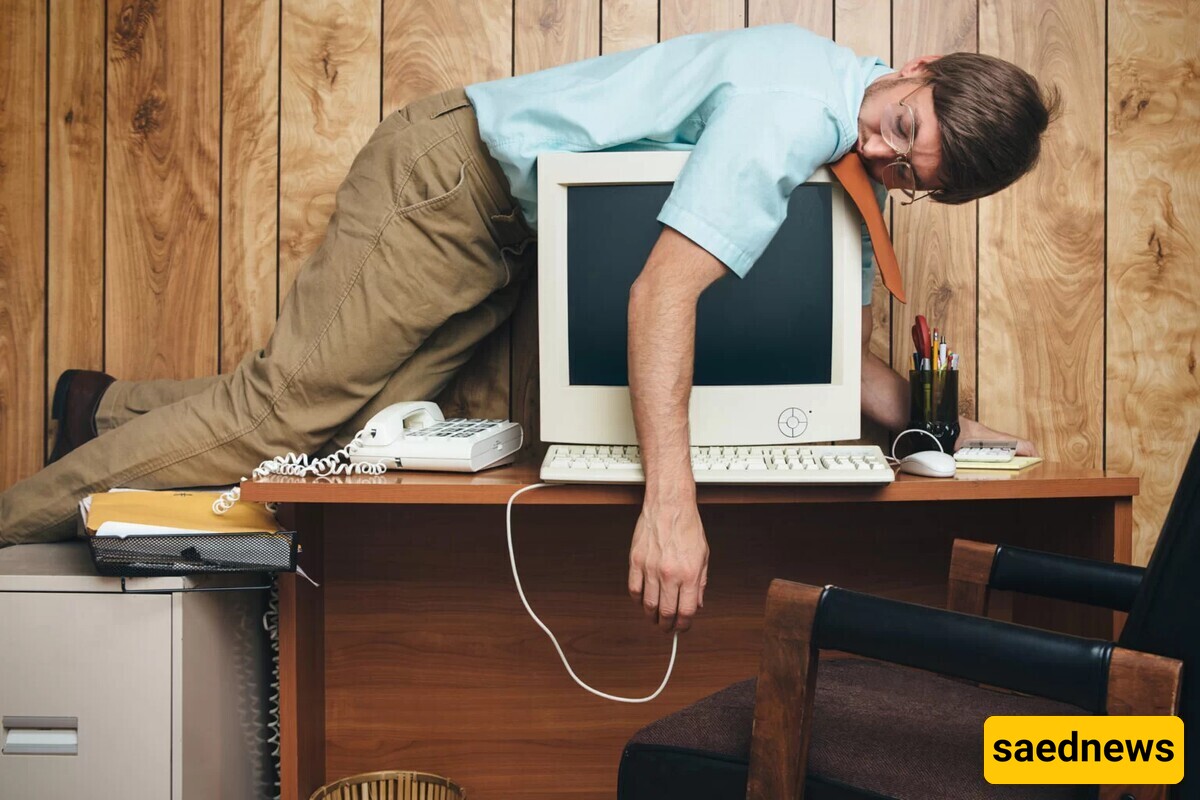Feeling tired at work is natural, and it's unrealistic to expect to have the same energy and enthusiasm in the late afternoon as you did in the early morning after hours of continuous work. While some employees have lower energy levels at the beginning of the day and become more energetic as the day progresses.

According to the family magazine service of Saed News, you are at work, performing your daily tasks, and suddenly you experience yawning, lack of focus, irritability, heavy eyelids, drowsiness, and fatigue. This situation is familiar to all employees and can occur daily or occasionally, especially on days with high work pressure and heavy schedules. In such cases, most employees resort to energy drinks, coffee, or tea. Some continue working without proper concentration, while others rest their heads on the desk and fall asleep, ignoring their surroundings. But are these solutions effective in reducing workplace fatigue?
What Can Be Done to Prevent Fatigue at Work?
Always Have Breakfast: Breakfast is so important that nutrition experts call it the "golden meal." This emphasis is because breakfast provides the energy needed for the day. Skipping this meal can lead to a drop in blood sugar levels by mid-morning (10 to 12 AM), which is a hidden cause of fatigue. Ensure you get the necessary protein and carbohydrates from a healthy breakfast.
Avoid Sitting for Long Periods: Stay active at work and avoid prolonged sitting. Your job might involve constant interactions, leaving little time for movement. Utilize short breaks for activities like making tea or washing your hands.
Besides short walks, climbing stairs, watering plants, and any other activities that increase your movement, try to stand up every hour and perform simple stretches. This will help relieve muscle tension and improve your overall well-being.
Don't Forget to Rest: Not all jobs require sitting for long hours. Some jobs, like being a preschool teacher or construction worker, involve constant movement. It's beneficial to take breaks during work to boost your energy levels.
Research shows that workers who take breaks are more productive and experience less fatigue. Even if your job requires constant sitting, request short break times from your manager.
Stay Hydrated: Dehydration is a common cause of fatigue that many employees overlook. Lack of water leads to weakness in daily activities and disrupts blood pressure regulation. Keep a water bottle handy at your workstation.
Many people rely on coffee and other caffeinated beverages to stay awake and energized at work. However, high caffeine intake acts like a stimulant, leading to dependency and reduced effectiveness over time.
Take Deep Breaths: Did you know that while deeply engaged in work, your breathing becomes shallow, leading to stress and decreased energy? It's recommended to take deep breaths for 30 seconds occasionally to maintain alertness and oxygen levels in your blood.
Chat with Colleagues While Standing: Allow yourself and your colleagues to have short, informal conversations daily. Friendly chats unrelated to work increase interactions and camaraderie among employees, triggering the release of oxytocin, a hormone that creates a sense of satisfaction and relaxation, reducing job-related fatigue.
Stand up and walk around during these chats. Walking increases blood circulation, further reducing fatigue.
Opt for Healthy Snacks: Unfortunately, unhealthy snacks like chips, puffs, and chocolates are commonly found in employees' desks or bags, despite their known negative effects. Healthy snacks like fruits, raw vegetables, dried fruits, and nuts can help you stay energized at work.
Monitor Your Phone Usage: Picking up your phone to check the time can quickly lead to getting lost in social media or online games. This habit can distract you from your work duties and take away valuable time for movement or conversations with colleagues.
Additionally, try to distance yourself from your phone before bedtime to avoid losing sleep to social media scrolling. This will help you feel more rested and alert at work the next day.


